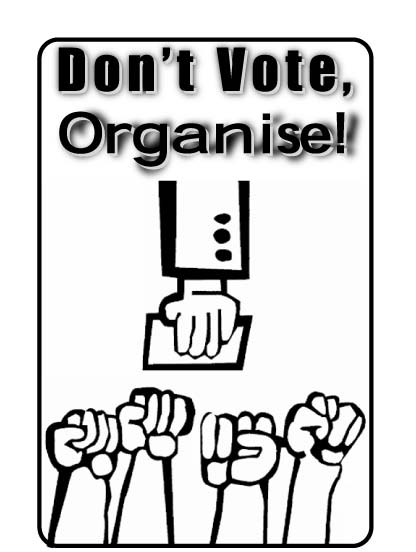(Via Tennessee Guerrilla Women 2010-05-17 and @InjusticeNews.)
By now you’ve probably seen the video of the SWAT stormtrooper raid in Columbia, Missouri, during which a gang of heavily-armed cops violently stormed a house in order to serve a search warrant on a suspected possible nonviolent marijuana user. Turned out that his partner and 7 year old child were also there at the time; so were their two dogs, which the cops went ahead to shoot and kill. After murdering pets, they repeatedly lied about their actions to neighbors and the press, and the story has only come out because the video has been released on the Internet. In any case, if you haven’t read it, Radley Balko’s commentary on the story is mostly right on.
In Tulsa County, Oklahoma, a government police SWAT team on another hyperviolent warrant-serving drug-search shot an nearly deaf biker named Russell Doza at least seven times in the back while he awoke from sleeping in a bed in the clubhouse. They were supposedly storming the clubhouse early in the morning in order to serve a warrant for the victimless crime
of selling marijuana and methamphetamines. They didn’t actually find any drugs in the clubhouse, and they didn’t find any of the suspects named in the warrant, but they did find Russell Doza, so three cops — Deputy Lance Ramsey, Corporal Tom Helm, and Sergeant Shane Rhames — shot him in the back, in one arm, and at least twice, point blank, in the back of his head. The cops claim he reached for a gun and just somehow got shot in the back of the head at close range. Even if he did reach for a gun, the cops created the violent confrontation in the first place by storming a private club for no just reason at all, in a failed attempt to discover evidence of a crime
that never had any victims to begin with. I have no particular reason to believe that the Deppities are telling the truth, but even if they are, they murdered Russell Doza.

Aiyana Jones
In Detroit, a government police SWAT team on another hyperviolent warrant-serving raid killed a 7 year old girl named Aiyana Jones by shooting her in the neck while she slept on the sofa, in her family’s living room, in their hosue on Lillibridge St. on the east side of Detroit. The SWAT team tstormed the house in the middle of the night in order to serve a warrant for a murder suspect. Who, in press releases after the storming of the house and the killing of Aiyana Jones, was indeed found in the location,
within the scope of our search warrant.
Except the problem is that the house is a duplex and they got a warrant for the home of a completely innocent family, without bothering to figure out where the fugitive was, and even though they had every reason to be aware that there were children living in the house that they planned to mount a high-risk hyperviolent raid on. They neglected to mention that the house they killed Aiyana Jones in was not the house where they arrested their Suspect Individual; when they got there, the door wasn’t even locked. But the cops were on film, being followed around by a camera crew for A&E’s murder-cop reality action show, The First 48. So what better opportunity to show their stuff?  They swarmed the front porch, hurled a flash-bang grenade through the plate-glass window into the living room, and then Officer Joe Weekley, a frequent guest star on several A&E cop shows, shot off his gun and put a bullet into Aiyana Jones’s neck.[] According to the initial excuses from the police, there was a
They swarmed the front porch, hurled a flash-bang grenade through the plate-glass window into the living room, and then Officer Joe Weekley, a frequent guest star on several A&E cop shows, shot off his gun and put a bullet into Aiyana Jones’s neck.[] According to the initial excuses from the police, there was a tussle
some sort of contact
[sic] between Officer Joe Weekley, and Aiyana’s grandmother, Mertilla Jones. According to the current police story, while the heavily-armed, professional police Officer Joe Weekley was courageously contacting
a 46 year old woman who was confused and upset by a bunch of heavily armed strangers blowing up a grenade in her living room in the middle of the night right next to her sleeping granddaughter and storming into her house, somehow, in a Terrible Tragedy, the gun just discharged,
somehow or another, in the midst of all the contact.
After shooting her granddaughter to death, police wouldn’t say whether or not Mertilla Jones would be charged with assaulting a police officer.
According to the family, the cops are lying. Geoffrey Fieger, a well-known civil rights lawyer in Detroit, has taken on the family’s case, and says that he has a tape which clearly shows the cops shooting blindly into the house from out on the porch, moments after the grenade blew up. I don’t know which is telling the truth, although I will say that the cops have obfuscated, revised, evaded and lied from the start in this case, in a consistent attempt to deny responsibility and create a false appearance of urgency. I have no particular reason to believe that they are telling the truth about this, either, whereas I do have some reason to believe that Fieger probably has the video he says that he has. All that said, it really doesn’t matter what the video shows, or doesn’t. If the cops burned a little girl to hell with an incendiary grenade and then shot her in the neck, accidentally,
while storming into a house they had no reason and no right to be in, in order to serve a warrant for a man who wasn’t there, because they couldn’t be bothered to exercise the caution necessary to pick the right unit of the duplex, or to work out some way of catching a suspect whose location they already knew other than a hyperviolent middle-of-the-night paramilitary raid, then they still fucking murdered that little girl. They introduced violence into the situation; they chose a hyperviolent confrontational method which they knew would be endangering the lives of a house full of completely innocent people; if you or I stormed two different apartments on the theory that a dangerous man might be in one of them, hurled explosives, ran around with guns drawn, and we accidentally
killed a child in the process, then you or I would be locked up immediately, indicted shortly thereafter, and thrown in prison for years. Because the unhinged maniac who shot a little girl happens to have a badge and a uniform, the shooter has been given a paid vacation from their job. Boss Cop Detroit Police Assistant Chief Ralph Godbee gave a press conference in which he solemnly announced how Very Sorry he was that police just had to gun down a 7-year-old girl in her own home, because of the risk to their sacred hides when Entering a Potentially Dangerous Situation. He wants you to know that this is a tragedy of unspeakable magnitude,
and that This is every parent’s worst nightmare. It’s also every police officer’s nightmare.
I can’t tell you what I think of that, because there aren’t any words that are dirty enough.
In a follow-up post on the Columbia, Missouri raid, Radley Balko posted a letter from a government soldier who took umbrade at his watch-word of police militarization,
because the rules of engagement SWAT teams operate under are, in some ways, even looser than those used by counterinsurgency soldiers trying to kill enemy guerrillas in Afghanistan. Balko seriously wonders whether SWAT teams are now more militarized than the military.
I’m not convinced, unless the in some ways is doing so much work as to make the statement meaningless. [] But the mere fact that the comparison might seem plausible is telling. And outrageous. But not at all surprising. How could it be, when every week brings Yet Another Isolated Incident, and when Terrible Tragedy after Terrible Tragedy shows SWAT teams once again storming houses and clubs for no reason other than to protect the investigation of the most utterly trivial and nonviolent offenses,
when they consistently use maximal force and freely open fire, even when they know that they may well be in completely the wrong house, even when they have every reason to know that they’re putting children’s lives in danger, and when they brutalize, beat and murder innocent people, over and over again, all with more or less explicit legal guarantees of complete impunity, and the lockstep backing of their departments and their colleagues throughout the government’s criminal system?
Do you feel safer now?


 They swarmed the front porch, hurled a flash-bang grenade through the plate-glass window into the living room, and then Officer Joe Weekley,
They swarmed the front porch, hurled a flash-bang grenade through the plate-glass window into the living room, and then Officer Joe Weekley,